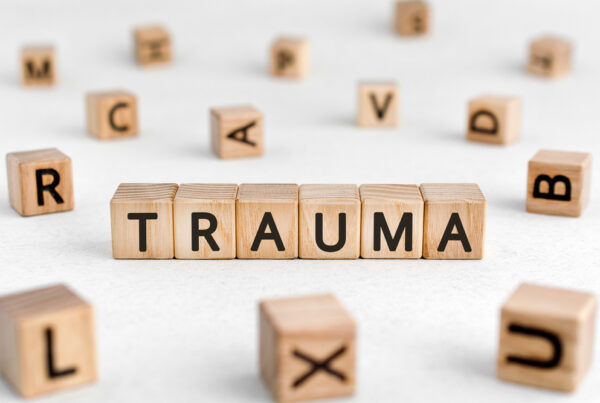We often face unexpected challenges that can leave profound impacts on our well-being. One such challenge is the experience of trauma and the development of post-traumatic stress disorder (PTSD). These conditions affect our mental health and influence our day-to-day lives. Understanding the connection between trauma and PTSD is important for fostering healing and seeking appropriate support to overcome these hurdles.
Trauma, in its essence, is the emotional aftermath of a distressing event. It can stem from various sources like accidents, physical violence, abuse, or natural disasters, leaving invisible scars that can persist long after the initial event.
The American Psychological Association defines trauma as an emotional response to a life-threatening situation, where the deepest wounds often lie within the heart and mind rather than on the surface. Symptoms of trauma can manifest in unexpected emotions, haunting memories, and physical discomfort, making it challenging to cope daily. However, through trauma counseling and support, healing becomes a feasible journey.
What Is Trauma and Post-Traumatic Stress Disorder (PTSD)?
Trauma, when left unaddressed, can evolve into PTSD — a condition that arises as a response to a traumatic event. While trauma is the emotional fallout from distressing incidents, PTSD is a diagnosable mental health disorder characterized by a range of symptoms. Those who experience PTSD may find themselves re-experiencing traumatic memories through distressing flashbacks or nightmares, causing significant distress and disrupting their daily routines.
The transition from trauma to PTSD occurs when the impact of a distressing event becomes persistent, affecting cognitive functions and emotional well-being. This shift can lead to the development of anxiety disorders, negative thought patterns, and, in severe cases, suicidal ideation.
The effects of PTSD extend beyond the individual, influencing relationships with family members and interactions in day-to-day life. Recognizing the signs and symptoms of PTSD allows individuals to seek appropriate care and support to heal.
What Are Some Types of Trauma and Risk Factors?
Trauma can take on various forms, each with its unique impact on an individual’s mental health. Physical abuse, sexual assault, natural disasters, or even a life-threatening car accident are examples of traumatic events that can leave lasting scars. The aftermath of such events differs, but they all share a common thread of challenging one’s sense of safety and security.
Risk factors play a significant role in the development of PTSD after a traumatic experience.
Individuals who lack a strong social support system, those with a history of mental health conditions, or combat veterans are more susceptible to experiencing PTSD symptoms. Moreover, children who have faced abuse or neglect may be at an increased risk of developing complex forms of PTSD.
Recognizing the type of trauma one has experienced and understanding personal risk factors are essential steps in addressing PTSD.
What Are Common PTSD Symptoms and Effects?
Post-traumatic stress disorder manifests in a range of symptoms that can significantly impact an individual’s mental well-being. Anxiety disorders, characterized by feelings of unease and worry, are common among individuals with PTSD. Visceral flashbacks and nightmares can transport individuals back to the traumatic event, reliving the distressing experience repeatedly.
Negative thought patterns often emerge, leading to self-destructive behaviors or challenges in maintaining positive emotions. The effects of PTSD extend beyond the psychological realm, influencing physical health conditions and exacerbating existing mental health problems.
Individuals may struggle to navigate day-to-day activities, experiencing panic attacks, dissociative episodes, or constant feelings of hypervigilance associated with the fight-or-flight response.
Recognizing the symptoms of PTSD is the first step toward seeking appropriate treatment and support, emphasizing the importance of addressing mental health concerns and accessing the necessary resources to embark on a path of healing and recovery.
What Are Treatment Options for PTSD?
Addressing PTSD involves a multifaceted approach that prioritizes mental well-being and recovery. Various treatment options are available to help individuals cope with and heal from the impacts of trauma.
Psychotherapy, also known as talk therapy, serves as a foundational component in treating PTSD. This therapeutic approach helps individuals process their traumatic experiences, understand their reactions, and develop coping mechanisms to manage PTSD symptoms.
In addition to psychotherapy, medication can also play a significant role in treating PTSD. Antidepressants, particularly selective serotonin reuptake inhibitors (SSRIs), may be prescribed to help alleviate symptoms such as anxiety, depression, and intrusive thoughts associated with PTSD. When used in conjunction with therapy, medication can enhance the treatment process and support individuals in regaining control over their mental health.
Trauma-focused interventions such as eye movement desensitization and reprocessing (EMDR) and cognitive processing therapy offer specialized approaches to target PTSD symptoms directly.
These evidence-based therapies aim to reduce the emotional distress associated with traumatic memories and assist individuals in reprocessing their experiences in a safe and structured environment. Incorporating trauma-focused interventions into a comprehensive treatment plan can lead to significant improvements in symptom management and overall well-being.
Where Can You Find Support and Resources for Individuals with PTSD?
Receiving support and accessing valuable resources are essential components of the healing journey for individuals living with PTSD. Beyond individual therapy sessions, support groups provide a space for individuals to connect with others who share similar experiences. Sharing stories, expressing emotions, and receiving empathy from peers can foster a sense of community and belonging, reducing feelings of isolation and stigma associated with PTSD.
Healthcare providers, including mental health professionals and trauma specialists, may guide individuals through their PTSD recovery process. Seeking care from qualified professionals trained in trauma treatment ensures that individuals receive tailored support and evidence-based interventions to address their specific needs.
Collaborating with a mental health team can offer comprehensive care that supports holistic healing and long-term recovery from PTSD.
Furthermore, organizations such as the National Center for PTSD and mental health associations provide valuable resources and information on PTSD diagnosis, treatment options, and self-care strategies.
These resources empower individuals to educate themselves about PTSD, explore different treatment approaches, and access support services tailored to their unique circumstances. By utilizing available support networks and resources, individuals with PTSD begin the healing process with confidence and resilience.
How To Best Combat Substance Use and PTSD
It is not uncommon for individuals coping with PTSD to turn to substances as a means of self-medicating or numbing the emotional pain associated with trauma. However, the link between trauma, PTSD, and substance use can exacerbate existing mental health challenges and complicate the recovery process. Engaging in self-destructive behaviors through substance abuse masks the underlying trauma and heightens the risk of developing additional health conditions.
Recognizing the detrimental impact of substance use on mental well-being is important for addressing the intersection of trauma and PTSD. Seeking support from mental health professionals and substance abuse treatment programs can provide individuals with the tools and strategies necessary to combat substance use while addressing their PTSD symptoms effectively.
We’re a Safe Spot on Your Path to Wellness
In the pursuit of healing from trauma and PTSD, remember that you are not alone. You can illuminate the path toward a brighter, more resilient future by stepping into the light of hope, embracing self-discovery, and seeking the support and resources available. Prioritize your mental health, embrace healing, and know that the power of transformation lies within you.
Haven House Sober Living stands as a beacon of hope for individuals navigating the complexities of trauma, PTSD, and substance abuse. Find solace in their structured recovery programs, supportive environments, and healing amenities in the heart of Los Angeles.
Whether you seek healing from addiction, trauma, or PTSD, take the first step toward a brighter future with the compassionate team at Haven House Sober Living. Your journey to resilience and long-term sobriety begins here.
Sources:
Posttraumatic Stress Disorder (PTSD) | Johns Hopkins Medicine



